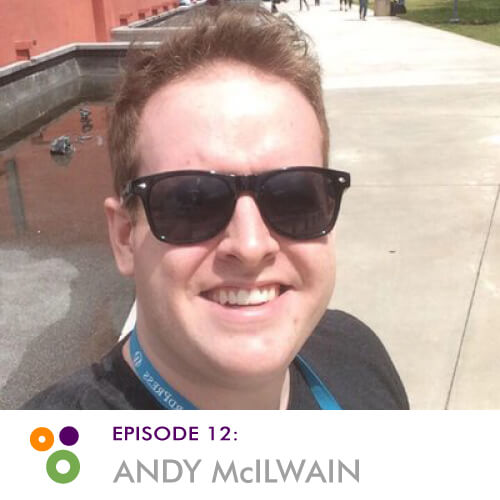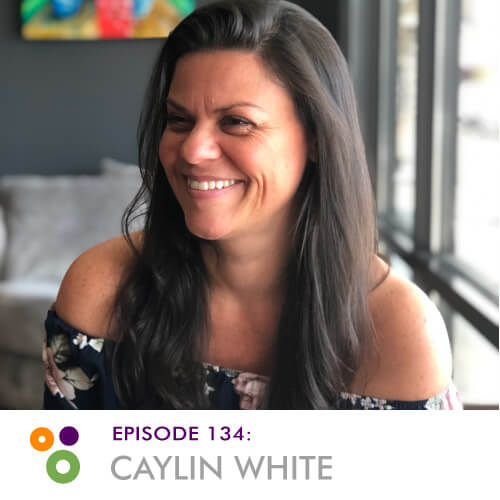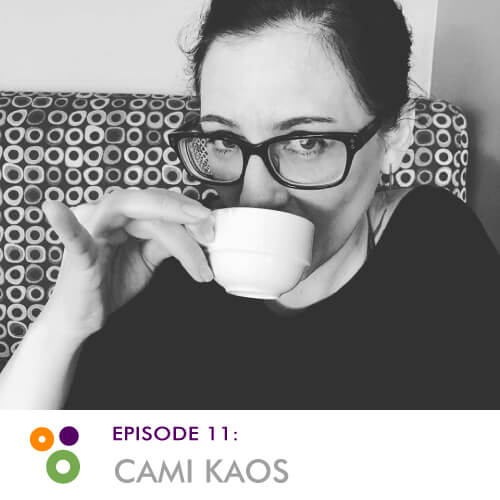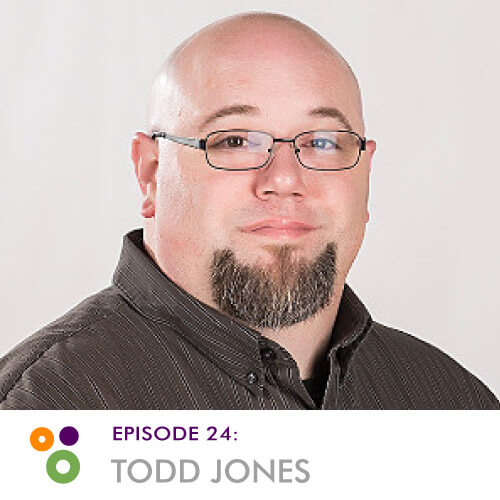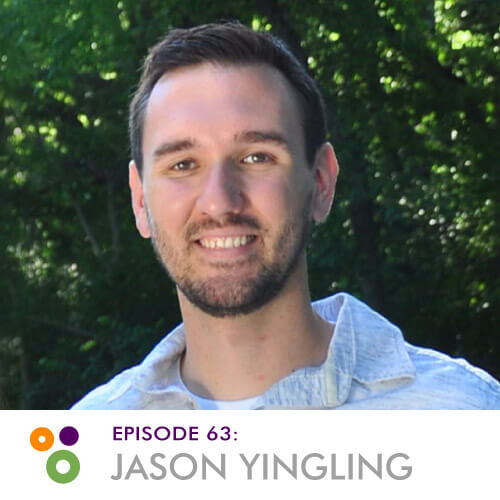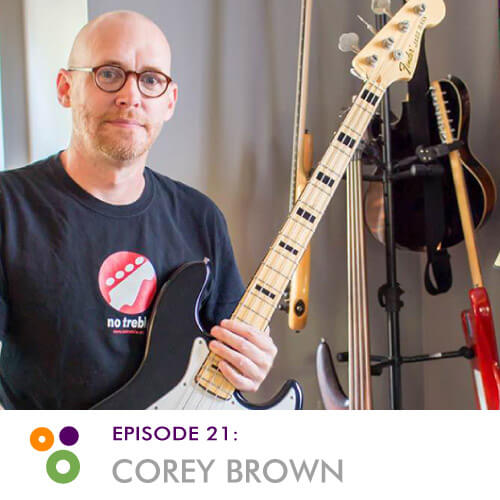Episode 95: Marius Jensen

Podcast: Play in new window | Download
Subscribe: RSS
Introducing Marius Jensen
Marius is an all-round work potato with a passion for helping others help others. Marius enjoys flying under the radar and represents the WordPress.org support community.
Show Notes
Plugin | Health Check Plugin
Plugin on GitHub | Health Check open source project
Twitter | @ClorithMJ
Blog | Clorith.net
WordPress Support Team WordPress Support
Episode Transcript
Tara: This is Hallway Chats, where we meet people who use WordPress.
Liam: We ask questions, and our guests share their stories, ideas, and perspectives.
Tara: And now the conversation begins. This is episode 95.
Liam: Welcome to Hallway Chats. I’m Liam Dempsey.
Tara: And I’m Tara Claeys. Today we’re joined by Marius Jensen. Marius is an all-around work potato, with a passion for helping others help others. Marius enjoys flying under the radar and represents the wordpress.org support community. Welcome Marius. We’re so glad to have you with us today.
Marius: Thanks for having me.
Liam: It’s our pleasure, Marius. Thanks for joining us here in the Hallways. Can you tell us a little bit more about yourself, please?
Marius: Well, I’m early 30s man from Norway in a little town called Sola. It’s really hard to say in English. I basically spend my days mostly working for a small midsize company that does everything for other businesses, company wise or IT wise. So we cover websites and even hardware. So kind of interesting like that.
Tara: What’s your background? How did you get into WordPress and computer science? Did you study it in school?
Marius: That’s actually kind of interesting because I just had a passion for computers, but I started out working at an ice rink. So the company I worked for now, did the IT at the ice rink and just randomly saw me typing away at Linux one day on my computer. And that’s how they found me because they needed somebody who could do Linux.
Liam: Were you supposed to be heading out the rental skates. I mean, what we were supposed to be doing when you were typing at Linux at an ice rink?
Marius: Oh, man, I should probably have been doing that. I started out doing the card duty, which is basically skating around on the ice, making sure everybody’s okay and doing first aid if anybody gets hurt. And then I progressed up and I did rentals stuff as well. But in the end, I managed the rental section and all the people who bathed at the concession stands. And that’s when they found me because, during day time, there’s not much going on.
Liam: So, were you writing some kind of Linux-based software to manage the skate rentals or were you just messing about on the laptop? In LA, we need that skill set. Can you quit your day job and come work for us?
Marius: I actually was working on IRC Network. we had a pretty big one back in the days for a lot of kids. So much of my free time went to just administration stuff there. One day I randomly got a text message from an unknown number, but just the text, “Do you have MSN?” which obviously should have been a red flag. I’m not going to lie. But that turned out to be my now boss, who was just trying to reach out and see if I was looking for something new within IT.
Tara: Tell me about ice skating in Norway. Does everybody ice skate. I’m just curious about the hobby of ice skating. Is it a common past time? I live near an ice rink outside of Washington, DC and we have a very popular NHL hockey team here. So people really gotten into skating. It’s become really popular and the rink is busy a lot. Is it an indoor, outdoor? What was that like?
Marius: Ours is indoor. I would say in our region, it’s definitely become very popular after one of our local teams started playing in, well, what we consider the Norwegian playoffs. They’re not as big as the NHL obviously, but the local team really got big, and that’s when things exploded. But I’ve always enjoyed it. My mother and my grandmother worked at the ice rink earlier, so basically, we’ve been raised there to an extent.
Tara: So do you still go there and skate now? Are you supporting them now? The company you work for, you said does work for the ice rink, but do you still skate?
Marius: It’s been a while. It’s a little bit tedious to get to it from where I live now because I rely on public transport, which is kind of hitting mess.
Tara: So let’s talk about WordPress little bit, Marius. How did you decide cover WordPress, and what do you do with it? You said that you help with support, but tell us a little bit about before that even how you get started with it.
Marius: Well, that was actually through work. We had a project for the ice rink, actually. They needed a reservation system, and we were redoing their website at the same time. So I figured, “Okay, actually, this is really flexible. Let’s see what we can do.” So we ended up actually making the ordering system and management of ice times and such between the different teams and schools and stuff with then WordPress admin. But in doing so, I discovered I knew very little about WordPress. So I landed in their IRC channel way before Slack was a thing. People that were just really friendly and willing to help so it kind of stuck with me. I spend a couple of years just hanging around not saying much, just observing, which obviously terrible if you want to get involved, but fun if you’re just learning.
Tara: No, that’s how you start, right?
Marius: Yeah, a little bit carefully checking the waters. And one day somebody pulled me into the support and documentation team weekly meeting, and kind of snowballed from there.
Tara: So what is IRC?
Marius: Oh, yeah.
Tara: That may be a question showing my technical ignorance maybe, but can you tell me what that is?
Marius: Quite the opposite, it is a chat platform. Basically, all the IMs, and even Slack uses or is based off it or uses it as a basis. So it’s a chat, really just to text back and forth.
Tara: Do you know what it stands for, IRC?
Marius: It is Internet Relay Chat.
Tara: Okay.
Marius: It’s been around for quite a while. Not as popular these days, because there’s shiny plugins that you can use instead.
Tara: Right, right. Okay. Thanks.
Liam: It had seemed to have kind of died off once things like AOL, MSN, and ultimately Slack with the user interfaces all up. Pretty people care about it.
Marius: Yeah, they want stuff to be pretty basically. They want shiny things.
Liam: Shiny is nice. What do you do for your current company? You you’ve talked about you worked in WordPress and wrote a reservation management system within WordPress. Is that what you do most days there? You had said the company does a lot of different stuff. And if you’re writing Linux, you know, you can’t be doing stuff outside of WordPress as well. Can you tell us about that? What do you do every day?
Marius: Yeah. I ask myself the same question.
Liam: That sounded a lot more accusatory than I meant it. I’m sorry about that.
Marius: No problem at all. I say the same pretty much every week. Currently, I try to do as much or as little work as possible. I do internal systems and such. Looking for a little bit of – what do we call it? A little bit of a reset after a little bout with a personal wall kind of deal last year. So I’m kind of just trying to calm down the client work and do everything internal. I’ve been with the company for almost 10 years, so I can do pretty much anything at this point. I can answer invoicing questions, I can do tech support, I can do, you know, websites. So we do websites with WordPress. That’s kind of what we focus on out to clients for public facing stuff. But we also do custom coding or even internet solutions with Laravel and solutions like that.
Tara: Marius, we like to ask everyone that we talk to on this show about success, and how they define success and what it means to them. Can you share with us your definition of success? What it means to you both personally and professionally, if you can.
Marius: Yeah, I can try. It’s a difficult subject, I guess, in some ways. For me, it is just actually being able to do stuff like this even though I don’t do it often. You know, talking with people and participating in chats like this. I would say just getting out there and being available and interacting with people. For me, at least that’s personal success. I’m not a big fan of people in many cases, not to be mean to people.
Tara: No, I get you. Totally. I see a T-shirts that pops up on my Instagram like an advertisement and it says something like, “I like coffee and a few people.”
Marius: Yeah, basically. Like, at WordCamps and stuff, I will just go out and I’ll be part of it. I’ll join chats if I can, stuff like that, but at the same time, it would be exhausting in a way because you don’t always feel like you’re filling in or participating as much as you could be. But professionally, I would say just that feeling of achievement whenever you manage something new that you’ve been looking for. For example, looking into a really hard problem and actually finding an elegant or really neat…Can we say neat?
Tara: Yeah.
Marius: …approach to solving those things. That’s a really good feeling I would say.
Tara: Thank you for sharing that. And Liam’s been quiet because his Zoom locked out. This has happened now a couple of time. Can we hear you now, Liam?
Liam: I hope so. I’m not going to touch any buttons right now. I wasn’t ignoring you, Marius.
Tara: I hope you were able to hear his definition.
Marius: I was.
Marius: That’s good.
Tara: What’s your biggest challenge that you face?
Marius: Are we talking professionally, personally, WordPress wise?
Tara: Well, you could tackle any one, two, or three of those. Whatever you’re comfortable sharing. It’s always good to hear about challenges. And also how you work on overcoming it or how you have overcome your challenge or how you work on it on a regular basis.
Marius: All right. My personal challenge, as I mentioned, people. I do actually do – and I’m kind of open about it if people ask me – I do therapy once a week for not liking people and social anxiety. I believe it’s called. Yeah, that’s the actual term. And depression. So just getting out there, putting myself out there, that’s always exciting, exhausting. After WordCamps, I’ll usually have a couple of days just in bed home because I’m just totally worn out. But WordPress wise, I would say just trying to motivate people. As you mentioned in my introduction, I am the current support lead for the wordpress.org. So trying to just keep people happy and engaging with them, hoping that they at least like what I do.
Liam: It’s a massive task, right? Because I spent a little bit of time working with the support team a couple of years ago, and the team itself is pretty massive, it’s spread out all over the world. So there’s a challenge of coordinating all those activities. And then the challenge of actually providing the very generous support that you and your team does and all the people just come into the forums looking for help, looking for answers, looking for solutions to that thing that just needs to work. How did you kind of get into that? I mean, you talked about you used to hang out on IRC, then you got pulled into the Slack or the team meetings. But what drew you to being as involved as you are at kind of an administrative level? Because once you become the lead of a project, there’s the work, but it’s much more about managing the project.
Marius: Yeah. I just really enjoy the element of it. I think that support is one of the best ways to learn WordPress, because there’s always that interesting problem that engages you as well. So you spend your time learning about that thing so that you can help other people. Even if it’s stuff you don’t know yourself, at least if you have like a little bit of a passion for it. But I would say I don’t really do as much administrative work as you would think. That’s where I like helping others help others. I really like facilitating, making it easier for people to help – doing little projects that empower our support. True? Yeah, that’s a good word. Like a browser extension that shows if anybody else is already looking at this question, very popular. Not…
Liam: I remember when that came in. That was great.
Marius: Yeah. Not originally mine. I won’t take credit for that. I just made some modifications to it later times. But sitting at a WordCamp and realizing we do this one thing with every single person and they always say, “Yeah, I’ve done these steps but it’s still not working,” and we know they’re lying, not because they’re malicious, they just have you turned off all your plugins, that is a really big ask of somebody whose website is acting up. So that’s where our Health Check plugin, which I love talking about, comes into play, which is actually lets you do that without affecting site visitors. And that’s really helped us actually get people to do the testing that we asked them to do.
Tara: How does that work?
Marius: Well, it’s a plugin. Some of it is going into WordPress core now for 5.2, which is really exciting. But the troubleshooting aspect of it actually makes a private session for your user, where it disables all your plugins and uses 2019 or any other default theme. And then you can turn them on one at a time to find out which plugin actually caused a problem for you on your site. That’s really handy.
Liam: And it only does that for you if you’re logged in user?
Marius: Yeah.
Tara: Also it can affect the front end of your site?
Marius: Well, it does affect the front end, but only for you, your user there and then.
Tara: Oh, wow. That’s awesome. I didn’t know about that.
Liam: Yeah. How did I not know about that? This is awesome.
Tara: Wow, yes.
Marius: Yes. We just passed 100,000 active users. So really excited.
Tara: Now, the will totally know I am lying when I say I’ve turned off all the plugins and I haven’t. Oh, that’s really cool.
Marius: Yeah. So making tools like that, I love doing that more so than administrative tasks, because administrative as a representative for any of the teams is, by and large, very much about writing chat summaries from gatherings and things like that. It’s not a whole lot outside of that. You can make it more, but it’s really hard. In our case, for example, we have the international forums, which are just wordpress.org/support, but we also have all these receptors sites for all the other languages, which have their own teams and their own little communities. So you’re not really one massive community. Well, you are one massive community, but you’re a massive community of many small ones. So there’s not a whole lot you do in that regard because they all manage themselves, mostly. And we just try to poke at them and see, how are things going? Is there anything we can help you with on like a grander level?
Liam: Cool. You’ve been very candid and open with us about some of the challenges you face around interacting with larger groups of people, and you shared that you came to WordPress through IRC, perhaps an easy amount of medium of communication. Would you talk to us about your first WordCamp experience, and what that looks like?
Marius: Oh, I would love to. My first one was actually the very last WordCamp San Francisco before WordCamp US became a thing. I was invited over because the Community Summit was happening. I already knew like I don’t make a whole lot of money, I couldn’t actually travel there. So it was really lucky to get one of those scholarships that they were doing at the time. I had no idea what I was going to. My only experience is with something similar were, well, not a system I would say at that point. It was fantastic really. Getting over there, really nervous obviously. I’d done a little bit of traveling before to the states for a family reunion and stuff like that but never, I would say, in this regard to meet a lot of people with the same interests. I would say, the first one, I didn’t really know what I was going into, so I just went to every single talk, which in itself can be exhausting. Since then I’ve noticed that I do the talks where I would say I’m a good acquaintance or friends with the one talking because it’s always nice to show support like that.
Liam: Sure.
Marius: But I find myself doing a whole lot of just being in the hallway and being dragged into conversations more so than striking up conversations. So that’s interesting. The people are just so friendly. Even though it’s really exhausting in the end, and you just end up, as I mentioned, going home and sleeping for a couple of days, it’s also liberating, because I feel more free with people with the same interests like this.
Tara: Is there a community there that you participate in?
Marius: Obviously, my support people. My peeps. They are the ones who invited me and they encouraged me to take the scholarship to join the first year. And everybody was just so friendly on the level, I would say, I hadn’t experienced before. It’s like, “Yeah, I’ll cover dinner this night. We’ve got the taxi, don’t worry about it.” Stuff like that. I wouldn’t say I’m a starving student, but as a starving adults almost, that was just amazing that you didn’t have to basically spend your grocery money that week on just getting around at a WordCamp to be able to participate in the things that are happening outside the camp as well.
Liam: I remember after WordCamp US when it was in Philly, I don’t know if was 2015 or it was 2016, but a bunch of support team moved over to Dave and Buster’s in Philly the next day and hung out there. I was lucky enough to tag along. It was really, really heartwarming to see the interaction and the support and the real friendship between the different team members there who clearly from where they’re flying home to that afternoon or that evening, don’t spend much time at all with each other in real life, but still really close and friendly. The silly banter back and forth and the supportive kind of friendly gesturing was absolutely wonderful to see.
Marius: Yeah, that’s right. You’re with us at Dave and Buster’s.
Liam: I was. I was. I was.
Marius: My memory is terrible. I totally forgot that. Well, there you go. I remember being at Dave and Buster’s.
Marius: It was there. It happened.
Liam: We actually went back the year after as well, brought some new people at the time. Had a great time. I love that place. I wish we had more arcades.
Liam: So I’m going to ask you about advice if I can. One of the questions we like to ask our guests is around the advice that they have received. So the question is, what advice have you received? What’s the best advice you’ve ever received in your life and successfully implemented into your life? And it could have been something you read. It could have been something, you know, your grandfather shared with you. Really any advice from anywhere. It can be personal or professional. Can you share that with us?
Marius: I was thinking about that because somebody asked me something similar not long ago. And I must admit, I don’t have anything that stands out, which is just terrible to think about. You have those little tidbits that you just bring with you throughout life that you never really consider advice. One of the things I do always keep with me though is my grandmother who passed away a couple of years ago – just the way I treat people in, in general in service industry and such. Bus drivers. I have this weird habit. You get strange looks on the bus when you do it, but I always greet the driver when I get on and I always, you know, give them “have a nice day” when I get off. If you’re getting off at the back of the bus, you give them a little nod and a wave. That kind of thing. Which you just carry with you. That might actually be a thing you carry with you because I am generally friendly with people who I meet. Maybe that’s it.
Liam: Yeah, I like that. I also thank the bus driver. I always say, “Thanks for the ride.”
Marius: Which people give you weird looks here. Also, the whole concept feet on the seat in the bus. Oh, I hate it. Had a teenager threaten me last week. No, not last week. A couple of weeks ago because I told him to get his feet off the seat. It really grinds my gears.
Liam: What specifically? Because it’s getting snow in the dirt or on the seat? Is it because when you were growing up your mom always used to make you keep them down? What specifically?
Marius: I would say it’s the apparent lack of respect for both the public transport system but also whoever comes on next and has to sit down. You don’t do that. You don’t put your shoes on the couch back home. Why do it on the bus? It really bothers me. Sometimes I speak up, most of the times I don’t. But that day, just had enough of it.
Liam: Let me ask you a different question. We’ve talked about a little bit about your work. We’ve talked about how you used to skate. We’ve talked about WordPress support forums. What do you do when you’re not in front of the computer and not in a work meeting? What do you do outside of work? What do you do outside of WordPress supports?
Marius: See, you mentioned not in front of the computer. That makes it difficult. Well, we often play a lot of games. Most of my friends are from other parts of the world so we just sit online and play. But I do enjoy hiking. As I mentioned, I’m from a little part in Norway, where we have some kind of famous nature positions. Wow. Like the Pulpit Rock, the big cliff thing, which a lot of people have seen. Something called Kjeragbolten, which is a boulder wedged between two mountains that you can stand on.
Liam: That sounds cool.
Marius: Yeah. So really nice stuff like that. I’ve never done a lot of it. I started doing hiking with my family year or two ago. But before then, never really been to any of these places.
Liam: It’s always amazing to visit wherever we live, whether it’s your corner of Norway and people come from afar to visit these wonderful things near us, whether it’s the museum or this natural rock between two mountains or some waterfall. And all the locals. I’ve never been there. I haven’t been since high school. Took me when I was 10 years old, kind of like that. But some interesting human phenomenal.
Marius: Yeah, it makes so little sense. It’s these fantastic things. And you’re just, “I live here,” and you either think, “I’ll have time later or I live here or I see it every day. Why should I bother?” It’s one of those things. But once you’re actually out there at those places, they’re usually really amazing.
Tara: Yeah, it’s nice to have people visit you because then it forces you to do those things that you don’t do. Entertaining people. I’ve learned more about where I live just by doing that.
Liam: You’ve been entertaining a lot of people lately.
Tara: Yeah, yeah. What are your goals? What’s next for you, Marius?
Marius: Oh, I don’t actually know. I guess just short term surviving this WordPress release. I did not anticipate it to be this stressful just to get a little bit of code going from one of my own projects. But long term, I would say just keep pushing on and passing those little personal hurdles that come up along the way.
Liam: Yeah, that’s not always a tiny little thing to achieve. I mean, we talk about them, that they’re little personal hurdles, but sometimes those little personal hurdles, depending on where we are in the week, look like massive personal mountains. “And how the heck am I ever going to get over those?”
Tara: Well, yeah, sometimes the goal is to get through the day.
Marius: Yeah. Some days are worse, some days are better. But at least getting out there, still continuing to try and do little things like joining in here. Just putting yourself a little bit out there.
Tara: Yeah, we’re really glad that you’re here with us today. It’s been interesting talking to you and hearing your story and what you’re working on. Thank you for all that you do for WordPress too. I definitely am going to look into that plugin. That sounds really neat.
Marius: Oh, my pleasure.
Tara: And very helpful. Very helpful.
Liam: Did you write that plugin? Is it kind of your plugin? Did the support team put it all together? How did that happen?
Marius: Well, I don’t want to take anybody’s thunder. I would say it’s my baby. It’s gotten input and suggestions and a little bit of enhancements here and there from other participants, by all means. I mean, it is open source. It’s available for all. But the basis of it, I would say is mine, yes.
Liam: That’s awesome. Congratulations and thank you.
Marius: I’m happy to have been of assistance.
Liam: Marius, we are coming to the end of our time here. Thank you so much for joining us. It’s been an absolute pleasure chatting with you and getting to know you a little bit more.
Marius: It’s been my pleasure. That went way faster than I anticipated. Wow.
Tara: Where can people find you online?
Marius: Well, I have a blog, clorith.net, which I’m not very good at updating. I’m also @ClorithMJ on Twitter because my normal name was taken, or just Clorith on Slack. I’m always open for questions or people wanting to reach out so.
Tara: Wonderful. Well, thanks again for joining us, and I hope to meet you in person sometime, Marius. Take care.
Marius: Thank you, and likewise.
Liam: Bye, Marius. We’ll see you at WordCamp soon, I hope
Tara: Bye.
Marius: Bye.
Liam: Thanks for listening to the show. We sure hope you enjoyed it as much as we did.
Tara: If you like what we’re doing here – meeting new people in our WordPress community – we invite you to tell others about it. We’re on iTunes and at hallwaychats-staging.ulpgsyz6-liquidwebsites.com.
Liam: Better yet, ask your WordPress friends and colleagues to join us on the show. Encourage them to complete the “Be on the show” form on our site, to tell us about themselves.
